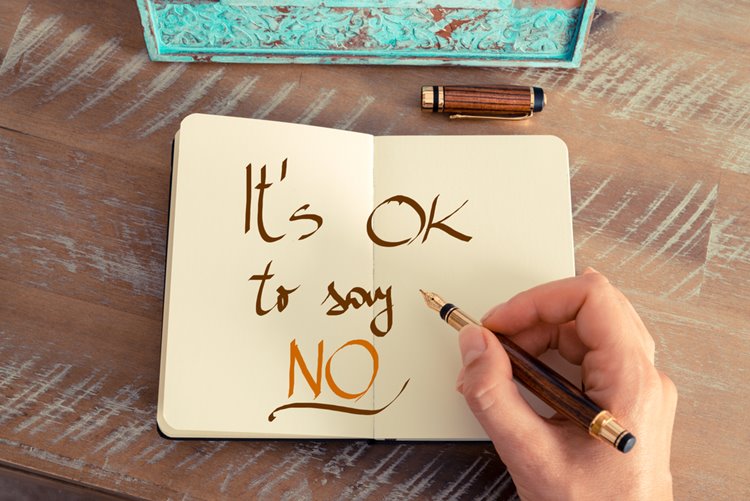How to successfully keep your work and personal life separate

With researchers discovering a direct correlation between overwork and serious health issues such as cardiovascular problems and the probability of strokes, isn’t it time we Australians took a closer look at our work life balance and found more ways of keeping work and personal life separate?

If you put together all of the hours that Australians worked during July 2018 you would come up with a whopping 1,748 million hours. That’s a lot of work time, but are Australians working harder than ever or are more of us realising that achieving a sensible work life balance by keeping work and personal life separate is important to our physical and mental health? The reality is that, despite rises in part time working to almost a third of workers, in the year between March 2017 and March 2018, average weekly working hours across Australia rose by 2.6%, we are working harder than ever, in a digitally connected world that makes escape from work almost impossible. We all agree that we should keep our work life professional but is it possible to successfully separate work and home life? We have a few tips on doing just that.
8 tips for separating your personal and professional life
- Say No to Notifications.
- Disconnect Every Day.
- Consider a Virtual Receptionist.
- Have a Designated Workspace.
- Carry a Notepad.
- Don't Use Personal Social Network Accounts for Professional Life.
- Talk to Your Boss.
- Say ‘No’ to Guilt.
1. Say No to Notifications.
Turning off notifications is probably the one simplest action you can take to separate work and home life whilst keeping your work life professional. Notifications containing positive information release dopamine, which can lead to addictive behaviour, whilst negative information increases the levels of stress hormones such as cortisol, which can mess around with your frontal cortex, the part of your brain that you need for high-level thinking. By turning off notifications you can choose when and where you will receive information or new tasks and avoid attempts at multitasking, which isn’t actually possible.
2. Disconnect Every Day.
With more and more connectivity being rolled out across Australia, it can be tricky to find time away from notifications, alerts and comments by work colleagues. Disconnecting can give your brain a chance to sort out tricky work problems without the next ones crowding in on top; it can also allow you to be yourself. Set aside a period of time each day when you turn your phone and laptop off and focus on being you, in the space that you are in at that moment.
3. Consider a Virtual Receptionist.
Escaping work can be tricky if you want to keep work life professional and avoid missing important phone calls. A virtual receptionist can either be a person who works remotely but handles your calls, messages and schedules or it can be an internet based service such as Google Voice, which allows you to screen phone calls, and receive voice mails in text form so that you can reply by email. Internet based virtual receptionists can’t make phone calls to schedule appointments yet but Google Assistant isn’t far off being able to do just that.
4. Have a Designated Workspace.
If you never work from home, this one is easy but, for most of us, keeping work and personal life separate is tricky and time working from home is the only way we can also manage our home responsibilities. Never be tempted to work in your bedroom; your bed is for sleeping and you need to feel relaxed there. Instead, allocate a specific area of your home to be your home office, that way you will be able to keep work life professional and your home and family life happy.

5. Carry a Notepad.
When we say ‘notepad’ here, we aren’t talking about a tablet or mobile phone app. A paper notebook is perhaps an old fashioned item but will allow you to stay disconnected whilst relieving the stress of trying to remember important ideas. Making lists is a great way to clear your mind; once a piece of information is on paper it no longer has to stay in your short-term memory. Don’t be tempted, by the way, to resort to electronic notepads here. Once you have connected again, you will find it very hard to resist checking emails and work accounts. If keeping work and personal life separate is the goal, a pen and paper will do a lot to help.
6. Don't Use Personal Social Network Accounts for Professional Life.
If your professional life is busy then you may socialise more with work friends than other friends but keeping work and personal life separate in your social media life is really important. Work pressures have a habit of creeping in even when you aren’t expecting them and online work chatter can disrupt even the most carefully constructed work life balance if you don’t demarcate between friends and work colleagues.
7. Talk to Your Boss.
Managers have a busy professional life and, although they will undoubtedly appreciate hard work in their employees, few of them will be keen to see the rises in sickness and absentee levels that can result from a stressed-out workforce. It may well be that your senior management team don’t realise the work hours implications of some of their decisions or that they aren’t aware of the impact this is having on their team. An informed manager is one that has been given an opportunity to take action, so go in with a few solutions as well as problems and be armed with an understanding of the legalities of the 2009 Fair Work Act.
8. Say ‘No’ to Guilt.
This is perhaps the most important piece of advice we can give you about keeping a separate work and home life. With a pressurised job and a full-on family life, it is easy to feel guilty and think that other people are being a better employee, husband, girlfriend or parent than you. Social media adds to this pressure but the rumours are wrong, nobody is perfect in any element of their lives. Most people are just doing their best and making the most of the time they have available. Many of us have jobs that could eat up as much time as we give them but we also have lives outside work that need us.

Say ‘no’ to lifestyle guilt and try out a few of our tips for keeping work and personal life separate. Your managers will notice an increase in productivity, your family will see more smiles and, as for you – you’ll start to feel you are achieving in some areas of your life instead of struggling in all of them.
Looking for more advice on how to guide your career life? Be sure to check out our other articles under that topic here.


)
)

